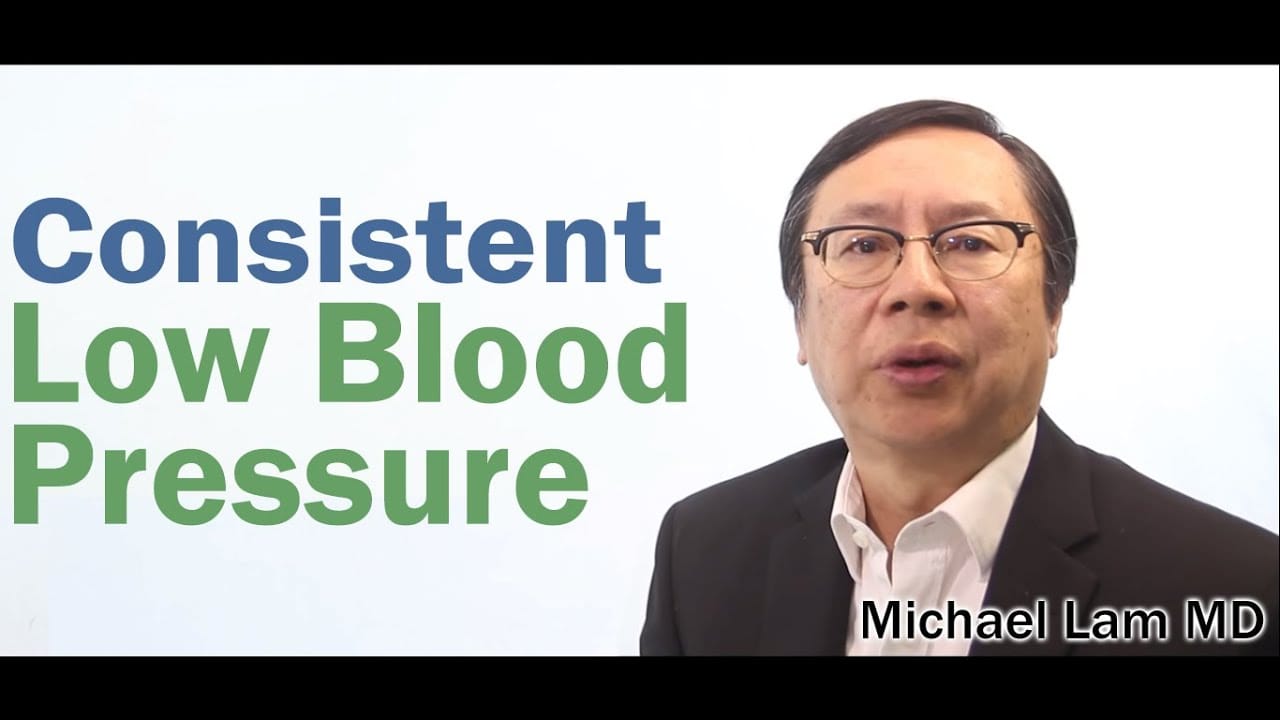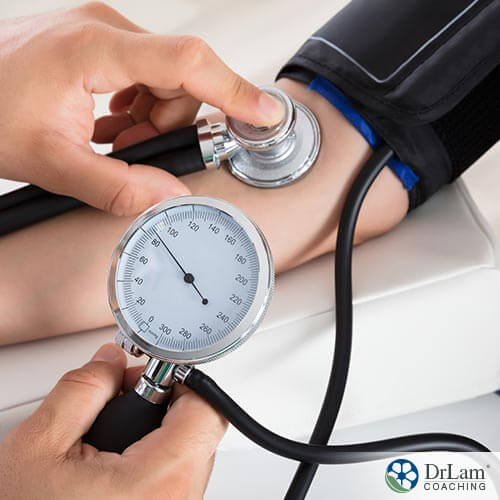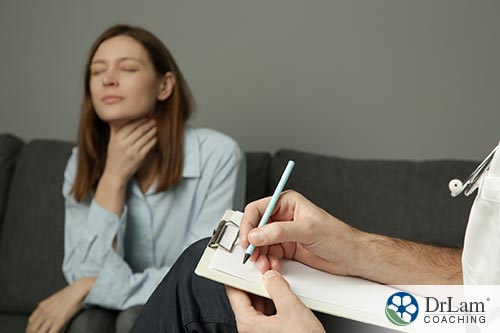
The risks associated with high blood pressure include heart attack, stroke, memory issues…the list is rather long. So wouldn't you think low blood pressure is better? But as it turns out, low blood pressure has its own set of risks. We just don’t hear about them too often. Most cases of low blood pressure are safe and don't require medical care, but if you have certain symptoms, it could be connected to something more serious. This article discusses symptoms, possible low blood pressure causes, and steps to address it.
From a medical standpoint, low blood pressure, or hypotension, occurs when your blood pressure is 90/60 or less. But what does this mean?
The two numbers each have a specific meaning. The top number, in this case 90, measures your systolic pressure. This is the pressure exerted on your arteries when your heart beats and fills them with blood. The bottom number, 60 in this case, measures your diastolic pressure. This refers to the pressure in your arteries between heartbeats, when they are in a state of rest.
Optimal blood pressure is 120/80 and lower. If you are healthy, then a lower blood pressure is fine. But low blood pressure can also indicate you have an underlying health issue. This is especially the case in older people where it could indicate too little blood flowing to the brain, heart, and other organs. So, if you are young and healthy with no underlying health issues, you probably will not need any care for having lower blood pressure.
However, blood pressure readings may also differ throughout the day. Many factors could influence your blood pressure reading.
Overall, if you have none of the symptoms that there is any trouble, you should be okay if your blood pressure is lower than the norm.
For others though, low blood pressure causes many symptoms. Some are short-lived, while others can be lasting or life-threatening. Symptoms may include:
Very low blood pressure can influence your blood’s ability to carry oxygen throughout your body. When the various organs in your body get too little oxygen, it affects their ability to work properly. If this is the case, low blood pressure could damage heart and brain function.
Knowing your exact low blood pressure causes is not always a cut and dried affair. Low blood pressure causes may also be temporary and not have any side effects. In other cases, the sudden onset of low blood pressure causes serious health issues.
Temporary low blood pressure causes include:
But sometimes your blood pressure may stay low for an extended period. Here other factors may come into play.
Your endocrine system, which is largely responsible for your body’s response to stress via the NeuroEndoMetabolic (NEM) stress response, could see problems arise with its various hormone-producing glands. These issues may result in low blood pressure. The most common of these problems include hypothyroidism, adrenal fatigue, low blood sugar, and diabetes.
 Orthostatic hypotension is also referred to as postural hypotension. It usually occurs when someone stands up after either laying down or sitting for a while. The condition occurs when your blood pressure suddenly drops, depriving the brain of oxygen. Blood may pool in the lower extremities once standing. To compensate, the heartbeat may accelerate with the blood vessels contracting. If your body does not compensate quickly enough, you may faint. Up to 20% of people over 64 experience this phenomenon. The condition also often occurs in those taking certain medications and in those with diabetes, those who are pregnant, people with high blood pressure, and those with autonomic nervous system disorders.
Orthostatic hypotension is also referred to as postural hypotension. It usually occurs when someone stands up after either laying down or sitting for a while. The condition occurs when your blood pressure suddenly drops, depriving the brain of oxygen. Blood may pool in the lower extremities once standing. To compensate, the heartbeat may accelerate with the blood vessels contracting. If your body does not compensate quickly enough, you may faint. Up to 20% of people over 64 experience this phenomenon. The condition also often occurs in those taking certain medications and in those with diabetes, those who are pregnant, people with high blood pressure, and those with autonomic nervous system disorders.
This disorder usually occurs in younger people and results from a miscommunication between the heart and brain. It involves a drop in blood pressure after standing for an extended period.
Anaphylaxis refers to a severe allergic reaction that occurs in those highly sensitive to certain foods or drugs. They may experience hives, itching, breathing issues, and a sudden fall in their blood pressure levels.
The term "septic shock" refers to a severe infection, such as when bacteria migrate from the site of infection and enter your bloodstream. These bacteria could produce toxins that affect your blood vessels, resulting in a dangerous drop in blood pressure.
Various heart conditions can result in low blood pressure. These include heart attack, heart failure, issues with your heart valves, and bradycardia (a very low heart rate). These could result in the heart having difficulties circulating blood. In other words, they could cause low blood pressure.
It is not uncommon for a pregnant woman to experience a drop in blood pressure during the first 24 weeks of pregnancy. It usually reverts to normal later during the pregnancy.
Although we think of dehydration in terms of not drinking enough fluids, your body could also become dehydrated due to illness. These include stomach issues like diarrhea or vomiting. Electrolyte imbalances and hormone issues like adrenal fatigue can also result in dehydration.
Trauma, which results in a decrease in blood volume, could also result in a drop in your blood pressure. Women may also find a drop in their blood pressure while menstruating.
Certain medications could result in a decline in blood pressure levels. These include diuretics, hypertension drugs, beta-blockers, certain antidepressants, and drugs used for Parkinson’s disease. Some over-the-counter drugs may also cause low blood pressure, especially when taken together with medications prescribed for those with high blood pressure.
Many people experience low blood pressure after eating, especially after having a meal high in carbohydrates. This could occur due to increased blood flow to the stomach and intestines. This may also result from a lack of vitamin B12 and folic acid.
The cardionomic circuit consists of the adrenal glands, cardiovascular system, and autonomic nervous system. This circuit forms part of the body’s NEM stress response, its global response to stress.
Low blood pressure can be caused by various conditions that put physical stress on your body. In so doing, it could negatively affect your adrenal glands, thereby contributing to the development of adrenal fatigue and other health problems related to stress. Many low blood pressure symptoms are also common with adrenal fatigue. Heart disease is but one of these.
Although most people with low blood pressure live healthy, productive lives, it could become an issue in some people. If it becomes a problem, contacting your healthcare professional is the best way to go. You may need medications to help with the problem. You could also make certain changes that include, amongst others, the following:
While many people with low blood pressure never show any negative symptoms, some people experience dangerous symptoms such as fainting or loss of blood flow to the brain. You should not disregard the symptoms.
If you suffer from low blood pressure, here are a few things you can do about the situation:

If you think your low blood pressure causes may harm your long-term health, please talk to your healthcare practitioner as soon as possible. They are best able to help your situation.
If you would like to know more about or need assistance with the different blood pressure causes, the team at Dr. Lam Coaching can help. We offer a free** no-obligation phone consultation at +1 (626) 571-1234 where we will privately discuss your symptoms and various options. You can also send us a question through our Ask The Doctor system by clicking here.
Low blood pressure causes can, and do, affect your adrenal health. Many of the condition’s symptoms overlap those of adrenal fatigue, while they also put added strain on your adrenal function. Likewise, adrenal issues can lead to endocrine dysfunction that can disrupt blood pressure.
